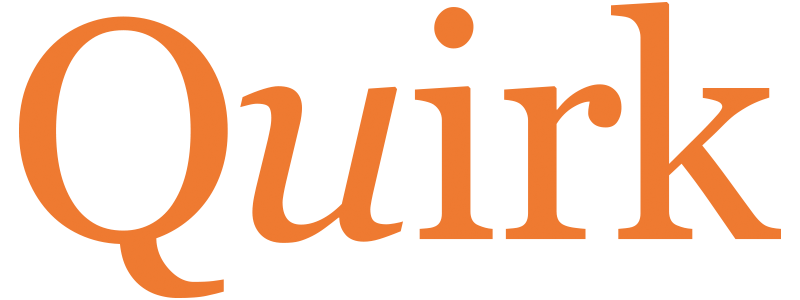Gallup found that only 44% of employees felt that they could always bounce back in tough times. This stat provides some early indications that resilience is an issue which leaders need to address.
Employees’ mental health and well-being are under threat, even more so in recent years, so, building resilient teams becomes ever more crucial for the success of any organisation. A resilient team adapts to change, overcomes obstacles, remaining productive in challenging times.
This article discusses how leaders can build resilient teams by fostering a culture of inclusion in the workplace.
Creating a culture of inclusion at work
A Gartner study reveals that a highly diverse environment can improve team performance by up to 30%. Also, companies with inclusive cultures are twice as likely to meet or exceed financial targets, according to McKinsey & Company. So, focusing on inclusion in your workplace benefits the culture and the bottom line. A culture of inclusion starts with the leaders in your business, as with any aspect of company culture. The leaders in your team need to want to build a resilient team and be part of that process. It is leaders that drive the culture.
Leaders that behave inclusively ensure people have the space and time to contribute. They recognise that some people will take longer to respond than others. For instance, some employees will respond quickly and be to the point. Others might take their time to reflect, finding different ways to present back. Leaders can drive a culture of inclusion by creating a conducive environment where employees feel safe to be themselves. Inclusive behaviours by leaders also provide psychological safety for employees, encouraging everyone else to follow suit. Leaders who prioritise and reinforce inclusivity will create a culture where every employee feels valued and respected. These values lead to increased productivity, innovation, and financial success.
The role of psychological safety in building resilient teams
Psychological safety is an essential aspect of building resilient teams. Any team member can speak out and voice concerns without consequences. When team members feel safe, they are more likely to take risks, voice their opinions, and collaborate with others. As a result, your teams become more innovative, productive and adaptable.
Inclusive leaders encourage their team to share their feelings and ensure that there is no ‘elephant in the room’. They deal with the issue head-on, creating an environment where everyone can feel safe to speak up. The combined outcome is a culture of resilience where teams can adapt to challenges and overcome obstacles. In summary, psychological safety drives resilience in the following ways:
· Psychological safety leads to increased creativity, as team members share their innovative ideas without fear of negative consequences.
· Teams that feel safe are better equipped to handle conflicts and disagreements.
· There’s a greater chance that employees engage in open and honest communication.
· Psychological safety fosters a culture of continuous learning. Employees are more likely to seek feedback and take risks without fear of failure.
· Teams that feel psychologically safe are better able to handle change, as they are more likely to adapt to new situations and embrace new ways of doing things.
· Psychological safety increases employee retention, as employees feel valued and supported.
At Quirk, we use gaming techniques to allow all employees to contribute and be heard. Games are a great leveller. They unite people from all different departments, levels, backgrounds, beliefs, orientations, abilities, and neurodiversity. One of the most effective games is De Bono 6 Thinking Hats because it removes ego. Everybody looks at the issue with the same perspective, i.e., positive, critical, creative or fact-finding.
Measuring inclusion in the workplace
While some organisations have found some success with measuring and tracking diversity, measuring inclusion has proven to be more of a challenge. Key indicators that you are on the right track with a culture of inclusion is that all people feel respected, accepted, supported and valued. Their views are heard and considered in decision-making processes. But how does an organisation measure that?
A positive first step is asking for employee feedback often, as this is valuable data for understanding how changes and initiatives have impacted your teams. Leaders can conduct engagement surveys or “office hours” to check in on their workforce, listening to and acknowledging all feedback. In the article, Four Ways to Meaningfully Measure Your DEI Efforts, Heba Mahmoud, Senior Manager of Diversity Initiatives at the Consumer Technology Association, advises about engagement surveys, “Ask people how they feel about their inclusion within your organisation. Don’t just ask, “How do you feel?” “.
The more leaders show genuine interest; the more employees will open up about how they perceive the company culture.
Building a resilient team through a culture of inclusion requires continuous effort from leaders and employees. It involves creating an enabling environment where everyone has a sense of belonging and of being valued. Leaders can achieve this by committing to regular feedback sessions, using the insights to drive change, and leading by example. By fostering a culture of inclusion, organisations can create a more resilient workforce that is better equipped to face challenges and achieve success.
LinkedIn Live – Creating a Culture of Inclusion – Insights from a Diversity and Inclusion Consultant
Rachel Ogden Wilson, a leading diversity and inclusion consultant, will join our MD, Chris Paton, on LinkedIn Live on 27th April, at 10 AM. Rachel and Chris will tackle questions such as:
· How can leaders create a culture of inclusion that values and respects differences among employees and promotes a sense of belonging and psychological safety?
· How can leaders incorporate diverse perspectives into decision-making processes and ensure that all employees have a voice and are heard?
· What policies and practices can leaders implement to ensure equitable treatment and opportunities for all employees, regardless of their background, identity, or status?
· How can leaders access the current state of diversity, equity, and inclusion in their organisations, measure progress and identify areas for improvement?
To register your attendance, follow this link, see you there.



